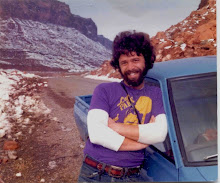
I love books. I have surrounded myself with books all my life. I love the feel of them. I love the way they look on a bookshelf. I love all the information that they hold. And I love the quiet dignity they give to our otherwise ramshackle house. I have so many books that over the past few years, I have taken to selling off a few of them (http://www.alibris.com/stores/westslopebooks). I haunt used book stores; wait for Friends of the Library sell-offs; ferret out yard sales; all in the hopes of finding some special treasure or unique volume. For me, the thrill is in the hunt.
A couple of years ago I found a first edition of John Steinbeck’s East of Eden which I bought for 50 cents at a yard sale and sold for $200. Another time I picked up the original two-volume set of Ullyses S. Grant’s autobiography which is worth close to $400. I got it for a buck. Then there was the first edition copy of Richard Farina’s Been Down So Long It Looks Like Up to Me which was published just weeks before his untimely death on a motorcycle. After paying 25 cents for it, I reluctantly sold it last year for $200.
Of course, for every success story like these there are dozens and dozens of mediocre finds; piles of Readers Digest condensations, romance novels, born-again Christian books, and old sets of encyclopedias. But for me, it is worth diving through the dreck if I can find just one worthwhile title. Whether I end up selling it or not is almost immaterial. I am determined to keep an eclectic and esoteric inventory that I can be proud of.
What brought this subject to mind is the increasing number of book hunters I am seeing now at yard sales who are relying on hand held computers that scan the books’ ISBN numbers and give an immediate value. I watch as these people pick up title after title, barely looking at it, and quickly scan the number on the back. They show no interest in what is inside the book; spend no time mulling over subject or author. Just a quick scan and it either goes in the bag or back on the table. It is a fast and soulless operation.
For these book hunters, the search is simply for the money. There is no passion involved. No curiosity beyond the book’s worth. Profit or not, I could never collect books in this manner. Fortunately, from my standpoint, there is very little competition involved. Most of the books I look for were published long before the advent of ISBN numbers. And I pride myself on having a degree of knowledge in my own mind as to what is of value and what is not. Often I may buy a book simply for its esthetics or content with no intention whatever of selling it.
I may spend a lot more time sifting through the piles of pages then these merciless scanners do, but I get so much more satisfaction out of it. Almost a calming reassurance that there is still value beyond money in the printed page, and it is something tangible and beautiful and for the ages. I will always treasure the tattered copy of Desert Solitaire that I bought 35 years ago when I was a ranger at Canyonlands. There are more stories for me in that one little book than on many a library shelf.



